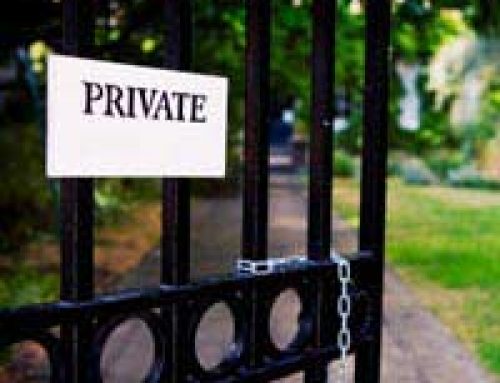
Illegal eviction by landlords is a serious criminal offence and the law is there to protect tenants in private rental accommodation.
Right to a Fair Eviction
If a landlord believes a tenant has broken the terms of their contract, or otherwise made their lease untenable, then by law they have the right to evict them from the property. By the same token a tenant has the right to a fair eviction, whereby the landlord follows the correct legal procedure. Eviction can be a traumatic experience and the law is there to make sure tenants receive fair treatment regardless of the nature of the problem.
If a landlord wants to evict a tenant then they must follow a strict set of legal guidelines in order to do so. Although the rules over notice period and procedures vary according to the type of tenancy, type of housing and the reason a landlord wants the tenant to leave, in the majority of cases it involves providing a period of notice and securing a court order. Most tenants are entitled to a written notice to leave a property even if the landlord did not originally provide a written agreement for them to live there.
The rules differ most significantly if the tenant actually lives with the landlord. Such ‘excluded occupiers’ have very few rights and can be evicted very easily. Conversely ‘regulated tenants’ have very strong rights. They can only be evicted if their tenancy is at the statutory stage and their landlord can prove a satisfactory reason to the court.
Illegal Eviction
If a landlord forces a tenant to leave their home without following the proper legal process then this constitutes an illegal eviction. Actions such as changing the locks while the tenant is out, threatening or forcing them to leave, physically throwing them out or preventing them from getting into certain part of their house are all criminal offences.
As part of the Protection from Eviction Act 1977 – and reinforced by the Housing Act 1988 – it is an offence to take a tenant’s home away from them unlawfully or to do anything “intending, knowing, or having reasonable cause to believe” that would cause the tenant to leave their home. The only person legally allowed to physically remove a tenant from their home is a court bailiff.
An individual convicted by magistrates of an offence under the Act may face a maximum fine of £5,000, or be sent to prison for six months, or even both. If the case goes to the Crown Court, the punishment could be up to two years in prison or a fine, or both.
Responsive Action
If a tenant believes they have been evicted illegally then they should seek legal advice immediately.
An advisor will be able to inform them whether they have any chance of getting back into their home or at least reclaiming their belongings, and then help them do so.
Although an illegally evicted tenant may have to right to re-enter their home, this is a complicated area of law and it is important before doing so they seek legal advice otherwise any action might constitute a criminal offence. Advisers can also help with finding somewhere else to live and in taking court action against the landlord.
The local council will have a tenancy relations officer in charge of investigating offences relating to illegal eviction and will be able to help with these matters. As well as helping negotiate with the landlord they also have the power to prosecute.





Please, can you help me. I’ve had too put up. With constant. Banging from my nextdoor neighbor. And who lives up above me. It has made a massive impact on my health. Mentally ill for and my phiscal health. Has deterated. The doctor’s told me. Two play my music. Two block it out.i feel that all the neighbours. Are sticking together. To try and and evict me. From my flat. I feel really depressed. And mentally phisicaly drained all the time. And life’s not worth living.
The council won’t move me. Or help. I have know help support.